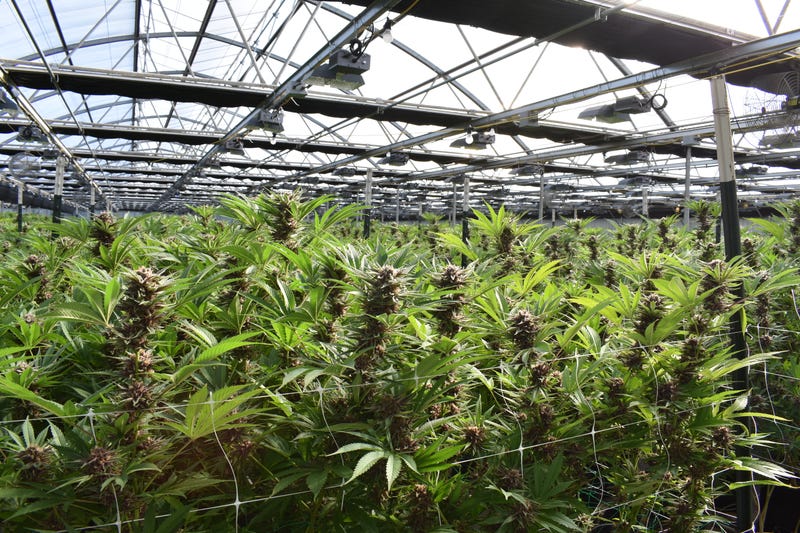
TRENTON, N.J. (WCBS 880) — New Jersey voters are deciding if the Garden State will become the 12th state, plus the District of Columbia, to legalize recreational adult marijuana use.
They first tried to get it done in Trenton, but the votes weren't there.
"They decided that they would basically punt and ask the people of New Jersey if they wanted to legalize the recreational use of marijuana," said Greg Edwards, with Don't Let New Jersey Go to Pot.
Edwards tells WCBS 880's Steve Burns that the legalization effort is being led by those who see dollar signs.
"What has motivated this from the get-go have been the interests of commercial cannabis producers," Edwards said.
He calls the constitutional amendment on the ballot "bare bones" and doesn't think lawmakers will impose too many more rules.
"Because they know that the more potent it is, the more attractive the product is, the easier it is to get people hooked," Edwards said.
But Axel Owen, with NJ CAN 2020, says there will be rules and there will be safeguards.
"What people get from a regulated business — we know the potency, we know that it's not contaminated, unlike what people are getting right now," Owen said.
He says the economic benefits are big, generating about $300 million in additional tax revenue, but even bigger is the impact on families and community.
Owen sees this as an issue of government waste, pointing to the time and money spent arresting 32,000 people a year in New Jersey on marijuana charges.
"We can stop unnecessary police interactions. The reality is they're spending hundreds, if not thousands, of hours just processing these arrests when the cops can be focusing on much more serious crimes," Owen said, adding those arrests also disproportionately impact communities of color. "If you're Black or brown in the state of New Jersey you're 3 1/5 times more likely to be arrested than a white person. Even the usage rates are completely the same."
Edwards believes the criminal justice issues can be resolved with decriminalization.
"It's not nearly as controversial and not nearly as having the same negative consequences," Edwards said.
Owen calls that argument a fallacy.
Polling has shown around two-thirds support for legalization. Owen believes sales could start up anywhere from six to 18 months after the referendum passes.
